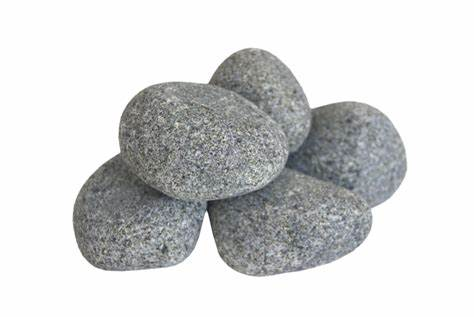Weight measurements can be confusing, especially when dealing with different units. In the United Kingdom, stone is a traditional unit of weight, while pounds are more commonly used in the United States and many other parts of the world. This article will explore how to convert 190 pounds to stones and provide insights into the historical context and practical applications of these units.
Converting weights between different units is a common necessity, especially when dealing with measurements from various regions. In the United States, weight is typically measured in pounds (lbs), while in the United Kingdom and other countries, stones and pounds are commonly used. Understanding these conversions is essential for accurate communication and comprehension.
Understanding Pounds and Stones
A pound (lb) is a unit of mass used in the imperial system, equivalent to 0.453592 kilograms. A stone is another unit of mass in the imperial system, primarily used in the UK, and is equivalent to 14 pounds or approximately 6.35029 kilograms. Therefore, to convert pounds to stones, you divide the number of pounds by 14.
Converting 190 Pounds to Stone
To convert 190 pounds to stone:
190 lbs ÷ 14 = 13.5714 stones
This means that 190 pounds is equal to approximately 13 stones and 8 pounds, since 0.5714 of a stone is roughly 8 pounds (0.5714 × 14 ≈ 8).
Practical Applications of Weight Conversion
Understanding weight conversions is particularly useful in contexts such as:
Healthcare: Medical professionals may need to convert weights to ensure accurate dosing of medications.
Travel: Travelers moving between countries with different measurement systems benefit from understanding these conversions for luggage weight limits and personal health tracking.
Fitness: Individuals monitoring their weight loss or gain can better understand their progress by converting measurements into familiar units.
Exploring Weight Loss Journeys on YouTube
YouTube hosts numerous inspiring weight loss journeys, providing motivation and practical advice for individuals seeking to improve their health. Here are some notable stories:
Losing 190lbs Made My Marriage Stronger
This video showcases a personal journey of losing 190 pounds and how it positively impacted the individual’s marriage.
From 250 to 190 lbs: Juan’s Life-Changing Weight Loss Journey
Juan shares his transformative journey from 250 to 190 pounds, detailing the steps he took to achieve his weight loss goals.
How I Went From 190lbs to 160lbs In Just 90 Days and got Shredded
A detailed account of a 90-day journey resulting in significant weight loss and muscle gain.
Two friends share their combined weight loss of 190 pounds in their 50s, discussing their diet and workout routines.
The story of a 23-year who lost 190 pounds and the …
A 23-year-old shares her story of losing 190 pounds and the lessons learned throughout the process.
Pounds (lbs): A unit of weight commonly used in the United States and many other countries.
Stones (st): A traditional British unit of weight, equivalent to 14 pounds.
Converting 190 Pounds to Stones:
To convert 190 pounds to stones, we divide the number of pounds by the number of pounds in a stone:
190 pounds / 14 pounds/stone = 13.57 stones
Therefore, 190 pounds is equal to approximately 13.57 stones.
Historical Context:
Origin of Stones: The use of stones as a unit of weight dates back centuries. It originated in ancient times and was used in various parts of Europe.
Historical Significance: Stones were historically used for various purposes, including weighing livestock, trading goods, and determining taxes.
Decline in Use: While still used in some contexts in the UK, the use of stones has declined in recent decades, with pounds and kilograms becoming more common.
Practical Applications:
Weight Management: Converting weight from pounds to stones can be helpful for individuals tracking their weight loss or gain.
Medical Professionals: Healthcare professionals may use stones in certain contexts, although pounds and kilograms are more commonly used in modern medicine.
Historical Research: Understanding the historical use of stones can be valuable for researchers studying historical records and social trends.
Beyond the Conversion:
Understanding Weight and Health: It’s important to remember that weight is just one factor in overall health. A healthy weight range varies from person to person depending on factors such as age, gender, height, and body composition.
Focus on Body Composition: Instead of solely focusing on weight, it’s crucial to consider body composition, which includes lean muscle mass, body fat percentage, and bone density.
Healthy Lifestyle: Maintaining a healthy weight involves a balanced diet, regular exercise, and a healthy lifestyle.
FAQs
What is a stone?
The stone is a unit of mass used primarily in the United Kingdom and some Commonwealth countries.
One stone is equal to 14 pounds.
Why do e need to convert between pounds and stones?
While pounds are widely used in the United States and many other parts of the world, stones are still commonly used in some regions.
Understanding how to convert between these units can be helpful for travel, comparing weights, and understanding different measurement systems.
How to Convert 190lbs to Stones
Divide the weight in pounds by 14:
190 pounds / 14 pounds/stone = 13.57 stones
Therefore, 190 pounds is equal to approximately 13.57 stones.
What is 190 pounds in kilograms?
To convert pounds to kilograms, multiply the weight in pounds by 0.453592.
190 pounds * 0.453592 kg/pound = 86.18248 kilograms
What is 190 pounds in stone and pounds?
190 pounds is equal to 13 stones and 8 pounds.
How much does 190 pounds weigh in other units?
Kilograms: 86.18 kilograms
Grams: 86182.48 grams
Ounces: 3040 ounces
Accordingly
Converting 190 pounds to stones provides a basic understanding of this unit of measurement. While the use of stones may be declining, it remains a part of British history and culture. Understanding different units of measurement and their historical context can be valuable for various purposes, from everyday life to academic research.
To read more,Click Here.





